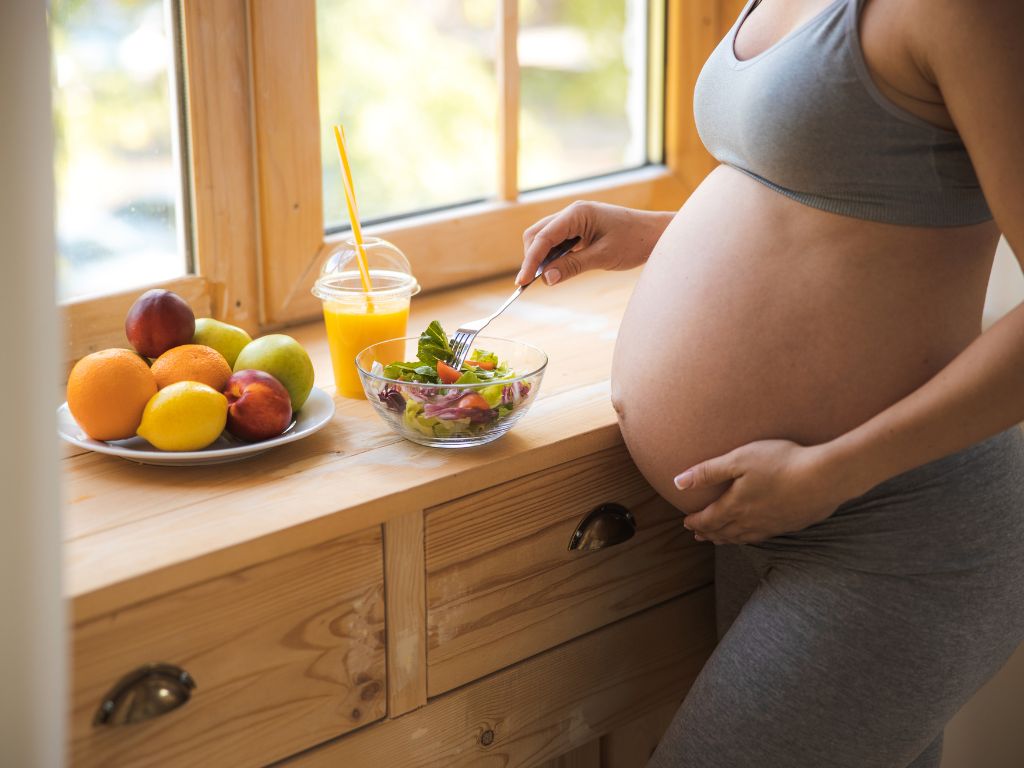If you’re trying to conceive, you’ve probably heard that nutrition plays a big role in fertility. What you eat can impact your hormone balance, egg and sperm quality, and even the success of infertility treatments. Whether you’re considering seeing a fertility specialist or are just beginning your journey, making mindful choices in the kitchen can make a meaningful difference. At our St. Louis, MO fertility clinic, Fertility Partnership, we often guide patients on how to optimize nutrition to support conception.
Best Fertility-Boosting Foods to Eat When Trying to Conceive
- Leafy Greens and Colorful Vegetables: Dark leafy greens like spinach, kale, and Swiss chard are packed with folate, a B-vitamin crucial for reproductive health and early pregnancy. Folate helps prevent neural tube defects in developing babies and supports healthy ovulation. Other colorful vegetables such as bell peppers, carrots, and sweet potatoes provide antioxidants that reduce oxidative stress in eggs and sperm.
- Whole Grains: Switching to whole grains like quinoa, brown rice, oats, and whole-wheat bread can stabilize blood sugar levels and improve insulin sensitivity, both of which can enhance fertility. Stable blood sugar is particularly important for women with conditions like polycystic ovary syndrome (PCOS), which is a common factor in infertility.
- Lean Proteins: Incorporate lean proteins from sources like chicken, turkey, fish, and plant-based options such as beans and lentils. Protein supports hormone production and ovulation. Fatty fish such as salmon, sardines, and mackerel are rich in omega-3 fatty acids, which may improve egg quality and regulate menstrual cycles.
- Full-Fat Dairy in Moderation: While low-fat options are popular for general health, studies suggest that full-fat dairy like whole milk, yogurt, and cheese may support fertility more effectively. Full-fat dairy provides fat-soluble vitamins and essential fatty acids that promote hormone balance.
- Nuts, Seeds, and Healthy Fats: Almonds, walnuts, chia seeds, and flaxseeds are excellent sources of vitamin E, omega-3s, and other healthy fats. These nutrients improve egg quality and may support sperm health. Pairing healthy fats with meals also helps your body absorb fat-soluble vitamins like A, D, E, and K.
- Fruits Rich in Antioxidants: Berries, citrus fruits, and pomegranates are high in antioxidants, which combat oxidative stress and protect reproductive cells. Vitamins C and E are especially important for hormone balance and fertility.
Foods to Limit or Avoid for Better Fertility When Trying to Conceive
- Trans Fats and Highly Processed Foods: Trans fats, often found in fried foods, baked goods, and packaged snacks, can negatively impact ovulation and sperm quality. Highly processed foods are also typically low in nutrients and high in added sugars, which may disrupt hormonal balance.
- Excessive Caffeine and Alcohol: Moderate caffeine intake (about one cup of coffee per day) is generally considered safe, but high amounts may reduce fertility. Similarly, alcohol can affect hormone levels and ovulation. If you’re trying to conceive, it’s best to limit alcohol or avoid it entirely.
- High-Mercury Fish: While fish is beneficial for fertility, certain types like shark, swordfish, and king mackerel contain high levels of mercury, which can harm developing eggs and sperm. Stick to low-mercury options like salmon, sardines, and trout.
- Unhealthy Weight Management Trends: Extreme diets, excessive calorie restriction, or skipping meals can interfere with ovulation and hormone production. Focus on balanced, nutrient-dense meals rather than quick fixes.
Lifestyle Tips to Complement Fertility Nutrition
Nutrition is just one piece of the fertility puzzle. Families in St. Louis, MO, seeking infertility treatment can benefit from a holistic approach. Consider these additional tips:
- Exercise Wisely: Regular physical activity supports hormone balance, but avoid excessive or intense exercise that can disrupt cycles.
- Manage Stress: High stress levels may impact fertility. Practices like yoga, meditation, or mindful walking can help.
- Stay Hydrated: Adequate water intake is essential for overall health and hormone regulation.
When to See a Fertility Specialist in St. Louis, MO
If you’ve been trying to conceive for a year (or six months if over 35), it may be time to consult a fertility specialist. Our St. Louis fertility clinic, Fertility Partnership, offers comprehensive infertility treatments, from affordable IVF to advanced reproductive technologies like INVOcell. Our fertility doctor, Dr. Simckes, can help identify underlying issues and provide strategies to improve your chances of conception.
Fertility Nutrition Tips and Expert Advice from a Leading St. Louis Fertility Clinic
Optimizing your diet is a simple yet powerful step when trying to conceive. Focus on nutrient-rich foods, limit processed items and high-mercury fish, and maintain a healthy lifestyle. Combining good nutrition with expert guidance from a fertility specialist can increase your odds of a successful pregnancy.
At our St. Louis, MO fertility clinic, Fertility Partnership, we help couples navigate every step of their journey, from preconception nutrition to infertility treatment. Don’t wait to start your path to parenthood. Schedule a consultation with our expert fertility doctor near you and take the first step toward growing your family.





